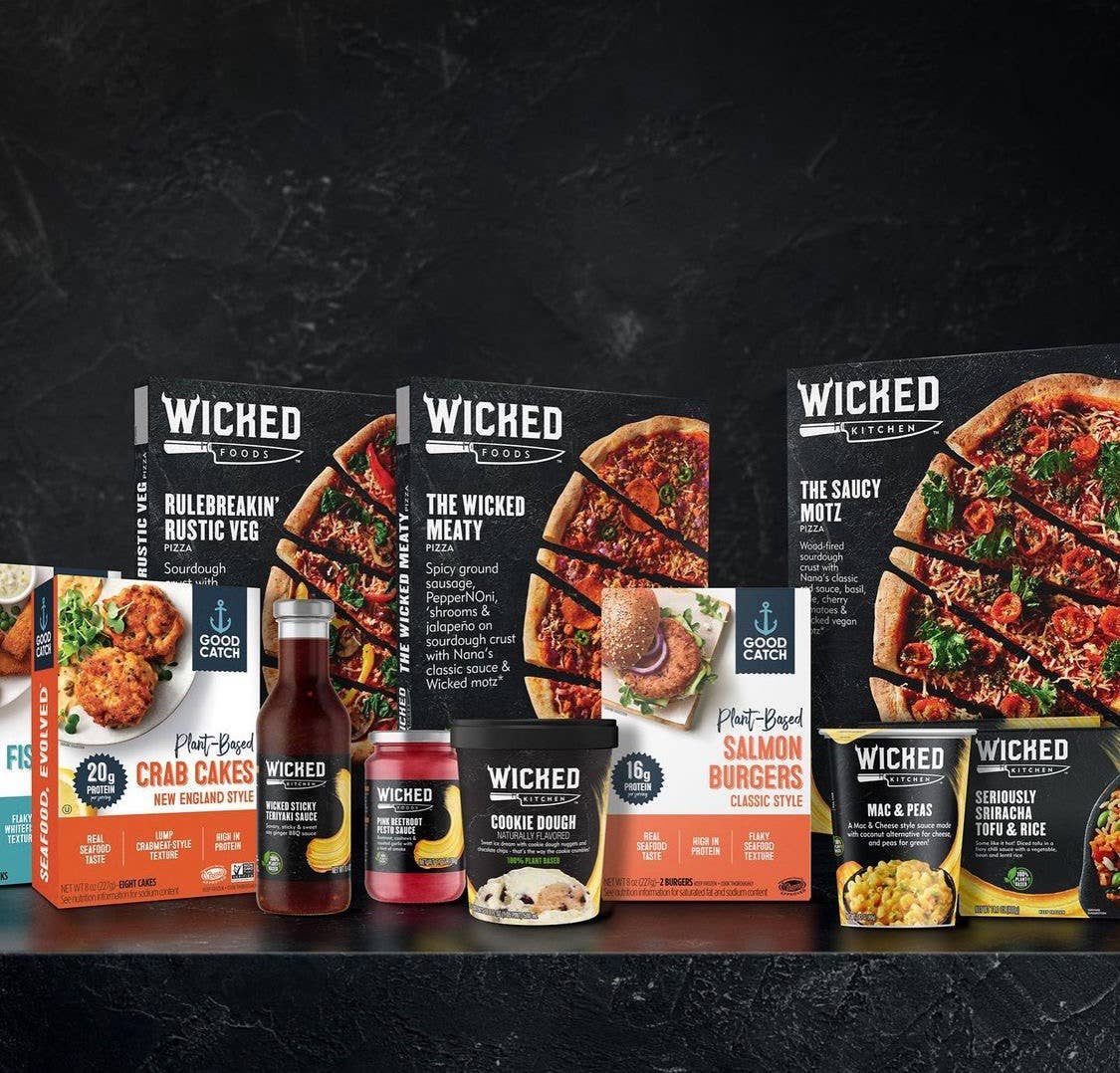
The Plant-Based Meat Market Eclipsed $1 Billion in Revenue in 2020
A recent report proves that plant-based proteins and meats aren't just the future: These innovative products have already captured consumers' interest at a rapid pace. During the COVID-19 pandemic, plant-based eating grew quickly as more consumers shifted their diets to focus on health and wellness. According to new research from market research firm P&S Intelligence, the plant-based meat and protein market revenue grew to over $1 billion in 2020. The research claims that the growth can be partially be attributed to the plant-based industry’s success. Plant-based companies rushed to develop several new vegan protein alternatives to meet the rising demand.
"The COVID-19 pandemic has raised concerns over the consumption of meat products and hence, the adoption of plant-based proteins is expected to grow, thereby propelling the meat substitutes industry,” the report reads. “Furthermore, the pandemic has disrupted the supply chain of meat-based products, which has led to the reduced availability of fresh meat. This has shifted the attention of customers towards meat substitutes, which is why the sale of these products is surging.”
While the plant-based meat market experienced success, the animal agriculture industry saw several supply chain disruptions, including a global shortage of chicken. Following the shortage, several plant-based companies took the opportunity to release plant-based chicken products to meet the unsatisfied demand.
P&S Intelligence’s report collected its data by analyzing the sals of plant-based substitutes that use wheat, soy, and pea proteins. The study also included seitan, Quorn's mycoprotein, tempeh, and tofu. The report found that the industry profited $1.769 billion across all plant-based categories. The report also claimed that soy-based products would hold the largest share in the market over the next decade while seitan will see the highest growth rate.
Worldwide, concerns surrounding food insecurity and sustainability have encouraged consumers to consider dropping meat and adopting plant-based alternatives. Companies such as Eat Just and Beyond Meat continue to see growth across all plant-based markets.
“The rising concerns regarding food insecurity and sustainability and rising investments in plant-based protein sources are the key driving factors for the meat substitutes market,” the report said.
Earlier this year, the global investment bank Credit Suisse released a statement that claimed that the vegan food market will grow 100-fold by 2050. The research report is titled “The Global Food System: Identifying Sustainable Solutions” and dives into how global consumers will shift towards sustainability over the next 30 years. The report claims that the growing vegan trend will result in the plant-based market reaching $1.4 trillion by 2050.
“A change toward a plant-based diet appears inevitable, in our view, if the global food system is to become more sustainable,” Managing Director of Credit Suisse in the Securities Research Division Eugene Klerk states.
The US in particular experienced a notably high level of plant-based sales. The P&S Intelligence report claims that North America will likely remain the largest market for plant-based products. A report from earlier this year compiled by SPINS, The Good Food Institute (GFI), and Plant Based Foods Association (PBFA) recorded that during 2020 the United States’ plant-based sales surged 27 percent, reaching $7 billion.
“The data tells us unequivocally that we are experiencing a fundamental shift as an ever-growing number of consumers are choosing foods that taste good and boost their health by incorporating plant-based foods into their diet,” PBFA Senior Director of Retail Partnerships Julie Emmett said when the report.
The Surprising Reasons these Five Country Singers Went Meat-Free
1. Carrie Underwood Loved Her Family's Farm Animals
Seven-time Grammy Award winner Carrie Underwood has been hailed for her “enormous” vocal range. When it comes to her diet, Underwood’s a fan of breakfast burritos and lots of tofu. She doesn’t shy away from the carbs, either. According to Cheat Sheet, one of her favorite snacks is a toasted English muffin with peanut butter.
2. Blake Shelton Wants to Keep Up With His Older Girlfriend
Singer, songwriter, and “The Voice” coach, Blake Shelton, 43, has been working to stay fit recently with help from his long-time love, Gwen Stefani, who is a vegetarian and told him to get off the meat if he wants to feel fitter and lose some weight. Shelton has been trying to keep up with Stefani's impressive fitness level, according to an interview Stefani gave this fall. The former No Doubt singer and Hollaback girl is a longtime vegetarian, eats a mostly vegan diet, and is super fit-- and at 50, looks younger than her years. A source told Gossipcop, “Gwen’s told him the way to lose it is to stay the hell away from meat and bad carbs.” We're rooting for him!
3. Shania Twain Has the Key to Gorgeous Skin
The best-selling female country music singer in history isn’t buying any expensive steak dinners after a performance. The “Queen of Country Pop” has sold more than 100 million records but says she keeps her meat-free diet simple. She is both vegetarian and eats very little dairy -- though at times has said she does eat eggs.
4. Annette Conlon, Folk Artist with a Passion
Americana singer and songwriter Annette Conlon is also a passionate vegan. She started “The Compassionette Tour,” in an effort to bring compassion, social consciousness, human interaction, and animal issues to a mainstream audience.
5. Johnny Cash, Walked the Vegan Line Late in Life
The Man in Black is synonymous with country music, even nearly two decades after his death (1932-2003), probably in part because of the biopic about his life starring vegan actor Joaquin Phoenix. Ask any die-hard country music fan (or your dad, for that matter) and they will tell you that Johnny Cash was one of the best-selling musicians of all-time. His scores of hits include “I Walk the Line” and "Hurt" "A Boy Named Sue" and dozens of others. Cash himself was believed to have lived meat-free later in life to help combat some health issues. At Johnny Cash’s Kitchen and Saloon in Nashville, you can also load up on the meat-free dishes as the restaurant boasts a fully stacked veggie menu that includes greens, sweet potato mash, and fried okra.
More From The Beet






